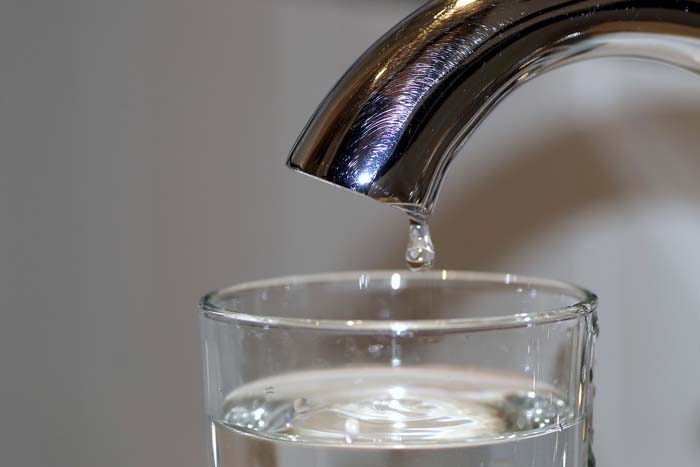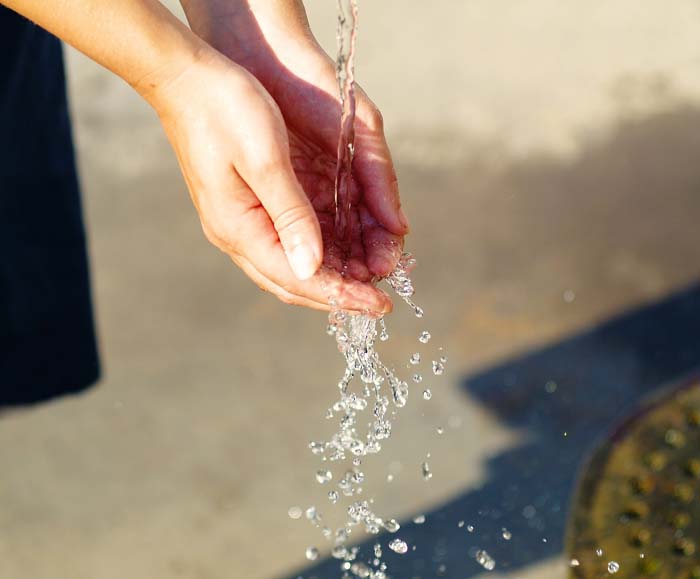
Water from boreholes and other precious resources makes it possible to get sustainable, clean water that won’t run out. In order to ensure that borehole water is safe, it is essential to follow all necessary safety measures.
Here are some ways to make borehole water safe to drink
Make sure the connections are hygienic
Hygienic connectors, which are strong bonds, hold your borehole water distribution system together. Carefully select plumbing materials, such as sturdy chains, and make sure all connections are secure to prevent the spread of germs. Keep unwanted visitors out of your water supply.
Test the water regularly
First and foremost, monitoring the borehole water quality through routine testing is important. Does it include any pollutants that are not readily apparent? Is the pH level stable? If you want to know if the water you use and drink is safe for human consumption, you can get the answers from regular tests.
Using chemicals properly
Your borehole water is just as vulnerable to chemical threats as combustible flames. Store them far from your borehole, and handle them carefully. This is to ensure that they don’t threaten the water supply in the event of an accident.
Practicing hygienic maintenance
Like tending to a peaceful garden, hygienic maintenance techniques ensure cleanliness grows. Take a cue from a gardener pulling weeds and clear the area around your borehole of any debris or litter. If you check for surface water runoff or erosion regularly, you can quickly take measures to stop any contamination before it happens.
Keep the borehole Safe
Think of your borehole as a stronghold that needs a sturdy cap to keep out water and debris. Tightly closing the borehole and protecting it from small animals, bugs, and debris ensures your water remains pure.
Maintaining your pump correctly
Regular pump maintenance extends its life and improves performance, like caring for a valuable jewel. Make sure the water runs freely, like a pristine stream, and clean the filters and screens as the manufacturer directs.
Preventing backflow
A backflow prevention system protects your borehole from possible pollution. It stands firm as a guard, protecting against the backflow of polluted water. You can keep its strength and effectiveness intact by inspecting and maintaining it often.
Look for expert help
Seek the advice of an expert whenever you are unsure. When it comes to the intricacies of water safety, water quality specialists are like seasoned guides. With their expertise, they can inspect and service your borehole system, leading you to water of the highest quality. If you want your water tested thoroughly to make sure it’s pure, certified labs are standing by to help.
Educate users
Education can enlighten a path toward safe borehole water for all consumers. By spreading the word, ensure everyone has the information they need to care for their health. Make people more conscious of the dangers, instill a feeling of personal accountability for water cleanliness, and rally them to keep the water supply safe.
Is borehole water OK to drink?
Borehole water is typically quite fine to consume. But you should check that the water from your borehole meets drinking water requirements.
Is it safe to cook with borehole water?
If you want to get the most out of your borehole water, you should treat it with the utmost care and utilize it in moderation. Before drinking or using water for cooking or preparing food, it is best to get it analyzed by a reliable laboratory.
How do you purify borehole water?
Borehole water purifiers come in a wide range of styles and models nowadays. Filters made of reverse osmosis, activated carbon, and sand are among the most popular.
- Reverse osmosis systems
These water filters are state-of-the-art and highly effective. These systems have a semi-permeable membrane to remove contaminants, including chemicals and dissolved minerals. Although reverse osmosis systems are the most effective and efficient way to purify borehole water, they can be more costly to set up and keep running.
- Activated carbon filters
These are superior at draining solutions of contaminants. A bed of activated carbon absorbs contaminants such as heavy metals, pesticides, and chlorine as water flows through these filters.
- Sand filters
These are an inexpensive and easy way to filter borehole water. Their operation involves transferring water via a sand bed, eliminating contaminants like sediment and dirt. Nevertheless, sand filters cannot remove dissolved contaminants like chemicals and minerals.
When selecting a water purifier, consider the local water quality problems. An activated carbon filter or a reverse osmosis system could be the ideal choice if you have polluted water with dissolved contaminants. A sand filter could be a more economical choice if most contaminants in your water are sediment and dirt.
Advantages and disadvantages of borehole water
Pros
Boreholes and the water they provide are among the most cost-effective methods of supplying water to houses and farms. If the groundwater table is sufficiently high, you can drill a borehole and use it for all water requirements.
Under typical circumstances, tapped groundwater is safe for limited agricultural and household uses, although it will likely require treatment. Before using this water, it is best that you test it.
You can use borehole water for non-potable household purposes, including watering crops, gardens, and grass, washing clothes, cleaning cars, flushing the toilet, and more. If you want to cut down on municipal water use, using water is a certain method. Just use it for drinking, cooking, and taking showers.
Cons
One important consideration is that impurities from the surrounding environment can affect the water quality of the borehole. The likelihood of contamination of the water increases if the surrounding area is highly polluted.
Borehole water has a few drawbacks that make it unsuitable for some uses (including drinking, watering edible vegetation, and cooking) until it undergoes purifying treatment. Because of the potential for pollutants, this cannot be done directly from the source. Consequently, analyzing the water and building a water filtration system will be more expensive.
There is additional worry about the long-term environmental impact when a rise in the number of boreholes in a particular area affects groundwater levels.
How do you purify bore water naturally?
One of the most typical problems with borehole water is mud mixed into it. Aluminum sulfate (Alum) allows water purification to proceed regardless of the presence of mud.
The first step in this process is to add alum to an open well or a tank containing saved borehole water.
There are a number of applications for the element alum, including water purification and primary sediment settlement. The amount of alum has a major impact on the water purification process. You can accelerate the purification process with the correct dosage of aluminum sulfate.
 Chemical used to purify borehole water
Chemical used to purify borehole water
Although boreholes provide an independent water supply for industrial uses, they are susceptible to contamination by various contaminants, including poisonous chemicals or bacteria. Common issues like pollution and scale formation necessitate specialized chemicals in borehole water treatment. In rare cases, pollutants like manganese or iron can be removed from water by adjusting the pH through oxidation or neutralization.
Can borehole water be filtered?
If your borehole water meets certain standards, filtering it is usually unnecessary as long as:
- According to the results of the chemical tests, it is safe to drink;
- Has no discernible smell or color.
- Cloudy water can be filtered until it is crystal clear, and
- Its pH is higher than 5;
How long does it take for borehole water to be clean?
Borehole water typically clears out in two to three weeks, though this time frame can be extended. However, this will depend on the water’s quality and the presence of certain contaminants.
Conclusion
Ensuring the purity of borehole water for human use is of the utmost importance. Following the ideas above and contacting Express Drainage Solutions can help customers make their water safe and reliable. Through compliance with regulatory standards, disinfection processes, water quality testing, routine maintenance, and suitable filtration system installation, we play a crucial role in guaranteeing the safety of the drinking water supply from boreholes. In order to ensure the highest degree of safety for your borehole water, contact Express Drainage Solutions and use their expertise.
